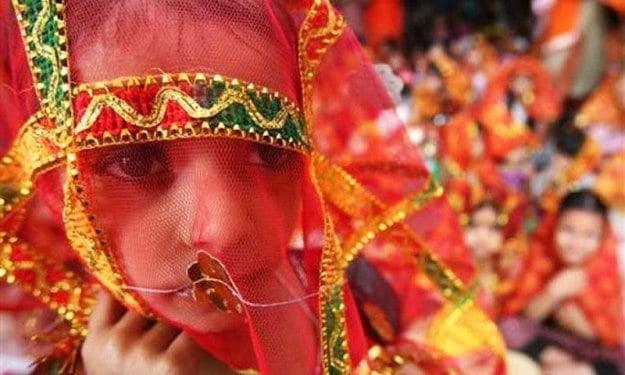Islamabad:
The Council of Islamic Ideology (CII) has rejected a bill that forbids marriage under the age of 18 in Islamabad and describes it as non-Islamic. The Council has also declared the Law on the Return Regulation of the Children 2025, presented by Khyber Pakhtunkhwa (KP) -Government, in conflict with Sharia.
A CII meeting was held on Tuesday led by Dr. Raghib Hussain Naeemi.
According to the declaration issued after the meeting, the Council discussed the bill presented by MNA Sharmila Faruqi from PPP and adopted by the National Assembly on May 17.
The bill was introduced with the object to limit, deter and eventually eradicate the concept and phenomenon of children’s marriages. It said no Nikah registrar should register a marriage where one or both of the Contracting Parties is under 18 years of age.
It stated that the person who violated or did not comply with the sub -section (1) and (2) of the bill are responsible for being punished with simple imprisonment of a period that should not be more than a year and with fine amounts to RS100,000, or both, unless he proved he had reason to believe that marriage was not a child marriage.
The bill sought additional punishment for male adults over the age of 18 who marry a child. “Whoever is a man over eighteen years old, contracting a child marriage must be punished with strict prison that can extend to three years but is not less than two years and is responsible for fine,” it said.
CII noted that the clauses that defined marriage under the age of 18 as sexual abuse and the prescription of penalties do not match Islamic injunctions. The declaration clarified that the bill to ban the marriage of children was not referred to CII for review before legislation.
The Council also found that the Law on Retention Regulation of Children 2025 was submitted by the KP government to contradict Sharih.
CII emphasized that Thalassemia tests before marriage should be optional, not mandatory, and added that marriage, according to Islamic teaching, should be kept free of unnecessary complications.
The Council also expressed concern about the irresponsible reporting of court decisions. It clarified that it is contrary to Islamic teaching to force the bride’s family to give dowry points.
The declaration also said that women should have the right to choose whether to reside in their husband’s field or their parents after marriage.
It decided that after the end of the IDDAT – the man – the mandatory wait – is not financially responsible for the divorced wife. In Islamic Shariah, IDdat is also observed in the event of the man’s death.
CII also proposed amendments to Klause 7 of the Bill on Muslim Families (amendments) 2025, which was referred to the one by the Ministry of Religious Affairs and formed a committee that drafted a new version of the law.
The meeting also considered questions received from the National Accountability Bureau (NAB) as well as questions related to Mudarabah (Islamic Finance), housing schemes and investment issues.



